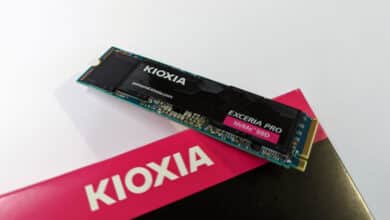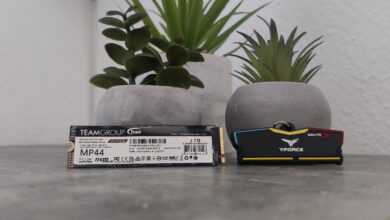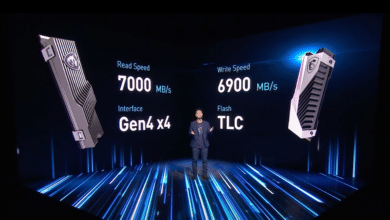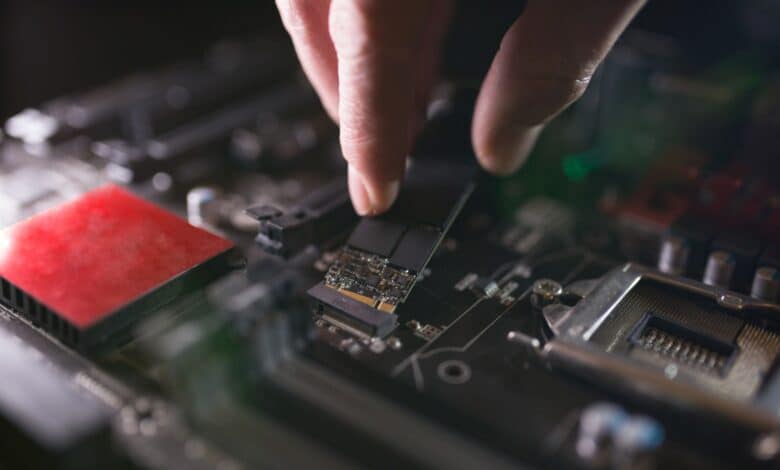
SSD storage is getting faster and more powerful. With increasing performance, however, the topic of heat generation, or effective cooling, is also becoming more and more important. In the course of this, Sebastien Jean, Chief Technical Officer of the SSD controller manufacturer Phison has commented on the new challenges in the field of SSD cooling in his own blog.
Active SSD cooling could soon become essential
When SSDs slowly but surely began to replace classic HDD solutions in the early 2000s, the lower power requirement combined with significantly lower SSD heat generation was a nice side benefit. In the meantime, however, storage solutions have evolved a lot, while current Gen 5 SSDs realize speeds of 12 GB/s and more.
This is also accompanied by a stronger heat development and current M.2 NVMe SSDs tend to overheat quickly. Phison’s CTO Sebastien Jean sees an additional challenge in this and assumes that actively cooled SSDs will soon be an issue. He revealed this now in interviews with MSI Insider and StorageReview.
Jean expects that active cooling will likely become essential with the move to Gen6 at the latest. “As the speed increases with each new generation, our challenge will be to manage the heat,” the CTO said.
M.2 PCIe Gen5 is pretty much the limit of what’s possible, and the interface or interconnect becomes the bottleneck for future speeds.
He expects SSDs to evolve similarly to CPUs and GPUs in the coming years, and that this will eventually necessitate active cooling. Current high-end PCIe Gen4-standard SSDs are already partially equipped with a heat sink to contain heat generation. For example, the participants of our Crucial P5 Plus Reader’s Test also advised using a heat sink. However, active cooling might become mandatory with the spread of the new Gen5 standard at the latest.
Phison plans different approaches
At Phison, the additional power consumption of PCIe 5.0 SSDs, which achieve double the speed of Gen4 with 14 GB/s, is countered in various ways. On the one hand, they are considering switching from the 16-nanometer process to 7 nm in manufacturing, thus enabling higher frequencies with a lower voltage.
Jean sees another possibility in the reduction of the NAND channels used by the SSD. He says this is already possible today due to technical innovations such as an improved ONFI bus speed.
Faster NAND interfaces now make it possible to utilize PCIe 4.0 and even PCIe 5.0 with four instead of eight memory channels. A reduction in channels would offer the potential for an SSD power consumption reduction of “typically 20 to 30 percent”.
Phison’s upcoming PCIe 5.0 SSD controller, namely the Phison E26, is already currently manufactured at TSMC and continues to rely on a 12nm manufacturing process, as well as eight NAND channels. The CTO’s considerations are thus rather dreams of the future.
Additional options and a new connector
Current M.2 SSDs, however, offer two additional options for heat dissipation, aside from copper foils and heat sinks, according to Jean. The connector pin at the connection to the board can already provide a remedy, although it is not super-efficient, according to Jean, but “makes a contribution.”
In his opinion, however, the small screw that fixes an M.2 module is much more important, representing “70 percent of the path for heat dissipation from the SSD to the motherboard”. Jean considers the fact that some cheaper SSD modules now do without a metallic screw and rely on a plastic mount to be critical. After all, an important cornerstone in the area of heat dissipation is waived here.
In addition, Phison’s CTO pleads for a new connector type to cope with the ever increasing performance and associated heat development of SSDs. New connection options beyond the M.2 standard are already in development and should appear “in the next few years”. For Jean, this might be the only way to bypass active air coolers on consumer SSDs.
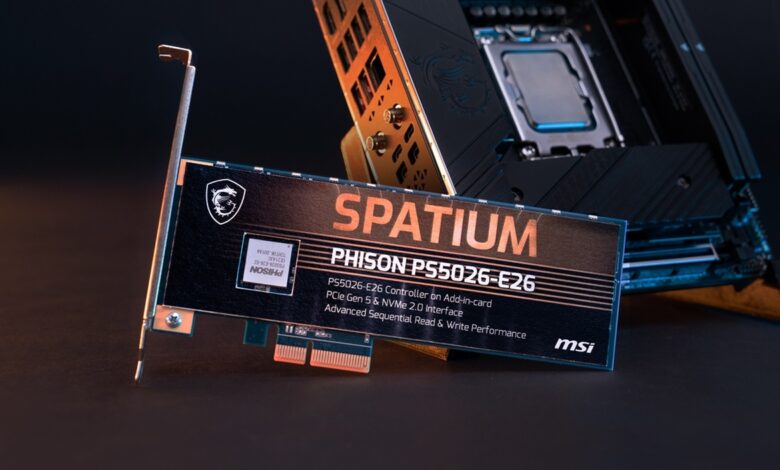
The issue of heat generation may also have been a major factor in the new MSI PCIe 5.0 Spatium SSD prototype with Phison E26 controller, for which the manufacturer is reverting to the add-in card format that was thought to be extinct.
